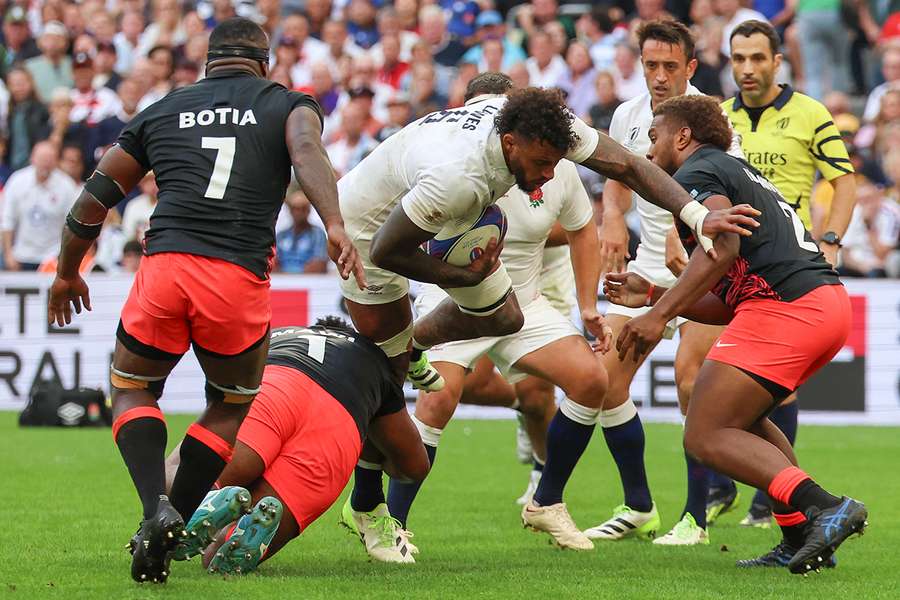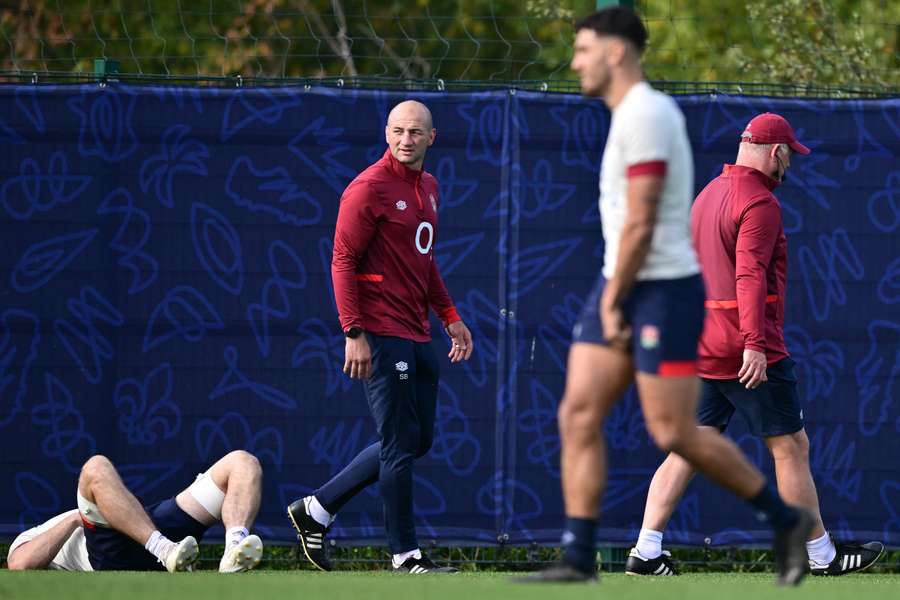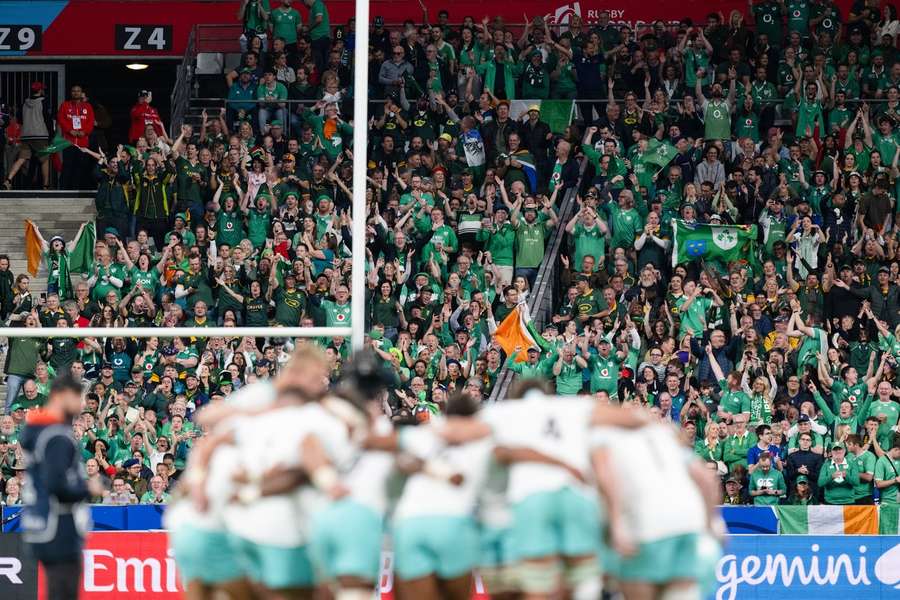Front-foot rugby key for England against battle-hardened Springboks in semi-final

Having endured a torrid run of five defeats in six Tests coming into the tournament, England travelled to France with expectation levels at an all-time low.
Fast forward six weeks and Steve Borthwick’s men have navigated their way through a favourable draw to remain the northern hemisphere’s final bastion of hope after the quarter-final exits of France, Ireland and Wales.
England’s reward is a meeting with South Africa, who produced a monumental performance to knock out the tournament hosts in an epic last-eight clash, elevating the Springboks to odds-on favourites to defend their crown. That inspired display provided a reminder of what’s needed to win the Webb Ellis Cup, with Jacques Nienaber’s star-studded squad hitting their stride at the perfect time.
The task facing England is a daunting one, but the Red Roses have a habit of producing some of their best rugby when their backs are against the wall, so Borthwick’s men will relish the ‘underdog’ tag when they take to the field against their highly-fancied opponents.

Setting the tone early on
England’s thrilling victory over Fiji in the quarter-finals was given the perfect platform by a dominant first-half display.
Ollie Chessum and Courtney Lawes were superb in setting the tone both on the floor and in contact, while the latter handled Levani Botia’s antics around the breakdown with the minimum of fuss.
The Red Roses will need to produce a similarly fast start against South Africa, stamping their authority on the battle up-front. The back-row trio of Lawes, Tom Curry and Ben Earl bossed the game with their brutal physicality and smart decision-making in the key moments, with Earl particularly impressive in securing turnovers and goading the Fijians to go off their feet at the ruck.
Coming up against the monstrous presence of Eben Etzebeth as well as the likes of Bongi Mbonambi and Pieter-Steph du Toit will be an altogether different challenge, but England can draw inspiration from their incredibly disciplined performance with 14 men against Argentina in the pool stage, where they nullified the physicality of a high-quality pack.
Borthwick’s side can also point to the set-piece as an area of strength, with Maro Itoje back to his best, showing good leadership at the line-out while causing havoc on the Fijian throw. The Saracens lock might not attract the plaudits he used to, but his world-class talent looks to be coming to the fore once again after a brutal display of tackling and ball-carrying.
It was England’s defensive effort that allowed them to be more dynamic in attack, with Owen Farrell central to everything good about their build-up, setting up Manu Tuilagi for an expertly taken first try. The bruised and bloodied Marcus Smith showed glimpses of his mercurial talent at full-back, while the vastly improved Joe Marchant scored England’s second after some quick footwork to beat three scrambling defenders.
Despite Smith’s positive showing, Freddie Steward returns to the side at 15 this weekend with his superior size and aerial ability crucial in dealing with the Springboks’ kicking game. Elsewhere, Joe Marler and George Martin also make the starting line-up, providing England with extra power at the scrum.
Brave tactics bear fruit
Quarter-final weekend saved its best for last as South Africa edged past tournament hosts France in one of the greatest matches in World Cup history. Trailing by a point at the interval, the Boks reaped the benefits of a strong bench as they wrestled momentum from Fabien Galthie’s side to outlast France in a memorable 29-28 triumph.
As the scoreline attests, there was little to separate two of the world’s best teams, as South Africa and France produced rugby from another planet in a remarkable opening period. The intensity and commitment on display was like nothing seen before in such a high-stakes encounter, and after eighty brutal minutes, it was the ingenuity of South Africa’s strategy that proved decisive.
Whether it was causing havoc in the French defence with a series of well-placed kicks (a tactic which yielded two tries in the space of 10 minutes) or the decision to load the bench with an abundance of world-class talent, Nienaber and the Boks’ coaching staff got their just rewards for a brave and intelligent approach.
Of course, the fleet-footed brilliance of Cheslin Kolbe and the exceptional all-round work of centre pairing Damian de Allende and Jesse Kriel kept South Africa in the game at half-time, but it was the introduction of World Cup-winning half-backs Handre Pollard and Faf de Klerk that really swung the contest in the Springboks’ favour.
Furthermore, replacement props Ox Nche and Vincent Koch were dominant in the scrum during the latter stages, while Kwagga Smith was at his destructive best in carry and at the breakdown. The Boks have named an unchanged side against England, so they’ll be hoping their diligent approach and bespoke set of plays prove just as effective against the Red Roses.
Contrasting routes to final four
Having already come up against the likes of Scotland, Ireland and France to get to this stage, the Springboks are battle-hardened and in excellent shape for the semi-finals. Despite a minor blip against an inspired Irish outfit in the pool stage, Nienaber’s men have shown exactly why they hold the title with a string of exceptional performances.

As for England, their route through the tournament has been considerably easier, with Argentina offering next to no resistance in the pool stage and Fiji struggling to find their top level in the quarter-finals. South Africa are a significant step up in class to any opponent they have faced, but England have developed the knack of finding a way to win and will use their painful defeat in Yokohama four years ago as fuel to drive them on.
While the odds might be stacked firmly in South Africa’s favour, knockout rugby can be a pressurised and unpredictable environment. England have plenty of tools to hurt the Springboks - and if Borthwick’s side are able to summon the spirit of 2019 when they produced a near-perfect display to stun the All Blacks - anything is possible on Saturday evening.
